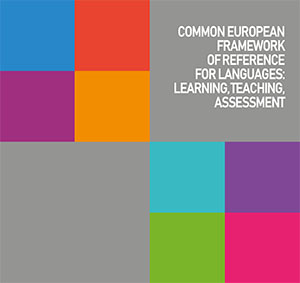Key concepts
The CEFR Companion volume underlines a shift towards a complex vision of the situated and integrated nature of language learning and language use. Many of the concepts introduced in the CEFR 2001 were very innovative and new to the majority of the field. Some of these concepts, such as a "can do" proficiency approach; the use of descriptors to align curriculum, teaching and assessment; the importance of interaction; and self-assessment and learner autonomy were widely adopted. Others, however, such as the focus on the agency of the user/learner as a social agent; the action-oriented approach; mediation and above all plurilingualism, needed more time to allow theorization and practical bottom-up developments to take place over the last 20 years or so. Now these less widely implemented concepts are further developed and explained in the CEFR Companion volume. This section of the website outlines the major characteristics of some of the more significant of them.
Videos
Watch How do action-orientation, mediation and plurilingualism, interrelate and align with recent developments in language education? (2023: Enrica Piccardo) (26:53)
Watch the video The Common European Framework of Reference – Companion volume: An interview with Brian North (2019: Wolfgang Hallett) (19:24)
Podcasts
Listen to the podcast Mediation and plurilingualism in the CEFR: Podcast of interviews with Piet van Avermaet, Brian North and Enrica Piccardo (2021: Amarins Jager, Laura Polman & Michelle Leegsma)
Documents
Read CEFR Companion volume - Chapter 2 (pages 27-45)
Articles
Read the article Enriching the scope of language education: The CEFR Companion volume (Chapter 1 in Enriching 21st Century langauge education, 2022: Enrica Piccardo and Brian North)
Mediation and the plurilingual / Pluricultural dimension in language education (2023: Enrica Piccardo)



